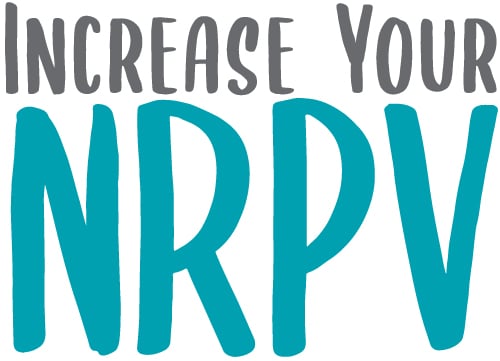
A decade ago, we aligned ourselves with an increasing body of critics who expressed concern about Group Purchasing Organizations (GPOs) and their business practices. We maintain that these organizations serve as superfluous intermediaries, contributing to higher healthcare costs, raising concerns about patient safety, restricting genuine competition, and impeding innovation in the healthcare sector.
After years of inaction following legislative oversight hearings, GPOs are again under increased scrutiny. The Trump administration may implement reforms to promote cost control, transparency, and accountability in healthcare by curbing certain GPO business practices and refocusing them on their original benevolent mission.
The Origins of Group Purchasing Organizations
GPOs originated in the early 20th century as hospital cooperatives designed to leverage collective buying power for medical supply discounts. Initially, the purchasing members covered the administrative expenses of these joint initiatives themselves, which promoted openness and ensured that all parties involved benefited. Proponents argue that this early framework genuinely served the interests of hospitals, manufacturers, patients, and taxpayers. However, a pivotal shift occurred in 1987 when the 100th Congress, through legislation, extended a statutory safe harbor for GPOs under the Anti-Kickback Statute. This legal carve-out fundamentally altered their financial structure.
Pay-to-Play Schemes
After GPOs stopped relying on membership fees, they began funding operations through manufacturer payments. This shift turned cooperatives into “pay-to-play” systems using exclusive contracts to buy market share, which may lower prices briefly but can also cause supply shortages and reduce competition. Critics say GPOs now prefer manufacturers who pay more rather than those offering better quality or value for patients.
The Oligopolies
With consolidation among leading GPOs, Vizient, Premier, and HealthTrust presently represent approximately 80% of annual contracting activity. Although federal agencies and Congress have continued to review their practices and there have been anti-competitive legal actions, no significant modifications have occurred.
Meet the Critics
The common thread uniting critics is the belief that the GPO safe harbor created a perverse incentive structure:
The GPO industry “has morphed from a business centered on bulk purchasing… to a business littered with pay-to-play deals and kickbacks…”
– Dr Marty Makary, United States Commissioner of Food and Drugs
Oversight by Government Agencies:
- A recent NIH-cited study on biosimilars noted that while aggressive GPO contracting increased biosimilar use in the short term, this strategy “could inhibit competition or create shortages in the long term.”
- Federal Investigations: Recent Senate hearings and investigations by the Federal Trade Commission (FTC) and the Department of Health and Human Services (HHS) into the role of GPOs in generic drug shortages keep the issue in the public and legislative spotlight, providing ammunition for critics.
Physician Groups Opposing GPO Practices:
- The American College of Emergency Physicians (ACEP), for instance, formally adopted a resolution calling for the outright repeal of the GPO safe harbor provision. ACEP’s core argument against the safe harbor exemption is that it allows GPOs to accept kickbacks from suppliers in exchange for market access. This model incentivizes GPOs to favor products that generate the highest fee for the GPO, rather than the lowest cost or highest quality product for the hospital. According to ACEP, this leads to:
- Lack of competition in the supply chain.
- Drug and supply shortages, as manufacturers are pressured on price.
- Inflated prices due to the “fee-for-access” model.
Other notable advocates for repealing the GPO safe harbor provision are those who argue it is the root cause of drug and medical supply shortages.
• Physicians Against Drug Shortages (PADS):
This is one of the most vocal and dedicated groups explicitly focused on GPO reform and the repeal of the safe harbor. They argue that the safe harbor, which exempts GPO administrative fees from anti-kickback laws, is a “pay-to-play” scheme that destroys competition.
- The American Society of Anesthesiologists (ASA) has highlighted the patient safety risks and potential deaths resulting from drug shortages that they link to the GPO model.
- The AMA, the largest physician organization in the U.S., has had a more nuanced but engaged position. While the AMA has not formally adopted a policy of outright repeal, it has acknowledged that the GPO safe harbor is flawed.
- AMA has called for greater public transparency and accountability regarding GPO contracting mechanisms and funding structures.
- Collaborated with specialty groups (like ACEP) to identify legislative remedies to address the negative impacts on drug pricing and shortages.
Thought Leader:
Dr. Jay Bhattacharya, Director of the National Institutes of Health (NIH), has not opined specifically about GPOs, however, his work has centered on healthcare economics (e.g., value-based purchasing, controlling Medicare spending, and reigning in drug pricing) echoes the need for transparency and dismantling entrenched, non-transparent systems in healthcare.
The mounting evidence and escalating politics suggest a critical juncture for these powerful intermediaries. The progress against the opaque practices of GPOs since the issue first gained widespread attention signals a growing national consensus. The healthcare sector, long burdened by these layers of intermediation, looks toward a future that includes genuine price competition, enhanced patient safety and empowerment, and an inclusive business environment where innovation and trailblazing solutions can truly flourish.
“Nothing should come between the company and our customers: that includes price, service, quality, or third parties.”
– Mark E. Biehl, CEO, North Coast Medical, Inc.









